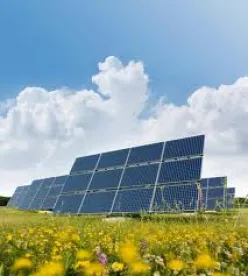Industry and the governments of the United States, the European Union and China have recently taken a number of legal actions involving renewable energy, particularly the solar sector. Actions pending before authorities in these regions and before the World Trade Organization (WTO) in Geneva raise a number of significant international law issues and greatly complicate the business landscape for solar industry companies domestically and globally. Developers of solar energy projects may face increased costs as a result of these actions. Coincidentally, decreased prices for various alternative sources of energy, such as natural gas and coal, pose further difficulties for the renewable energy sector.
In the WTO, two cases are challenging domestic content requirements of solar sector feed-in-tariff (FIT) programs that provide solar energy producers with long-term guaranteed revenue contracts. The challenges could result in the elimination of the domestic content requirements that favor domestic producers, or possibly a dismantling of the FIT programs themselves.
- In November 2012, China, joined by Japan and Australia, challenged the domestic content requirements of EU and EU Member State FIT programs. Greece and Italy are specifically named as two European countries with offending FIT programs.
- Last year, the European Union and Japan challenged similar domestic content requirements contained in an Ontario, Canada, FIT program. Although the WTO panel ruling will not be public until December 2012, unofficial reports indicate that the panel has found that Ontario’s domestic content requirements violate international trade rules.
Under domestic trade remedy laws, China, the European Union and the United States have initiated actions that could result in additional duties at the border on imports of solar industry goods alleged or found to be subsidized and/or unfairly priced in countervailing duty (CVD) and anti-dumping (AD) actions, respectively.
- The United States recently concluded AD/CVD investigations on imports of Chinese solar cells and modules. The findings mean that importers into the United States of these products must now deposit AD/CVD duties ranging from 24 percent to more than 250 percent, depending on the Chinese producers/exporters.
- In December 2012, the United States will conclude AD/CVD investigations on wind towers (the bases for wind turbines in wind energy production) imported from China and Vietnam.
- The European Union now also has AD and CVD investigations pending on imports of solar cells and modules from China into the European Union.
- China has initiated AD and CVD investigations—widely reported as retaliatory in response to the U.S. and EU actions—on polysilicon, a key element in the production of solar cells, from the United States and from the European Union, as well as from South Korea.




 />i
/>i

